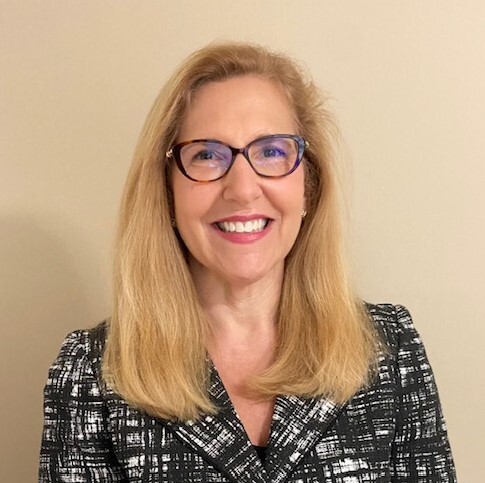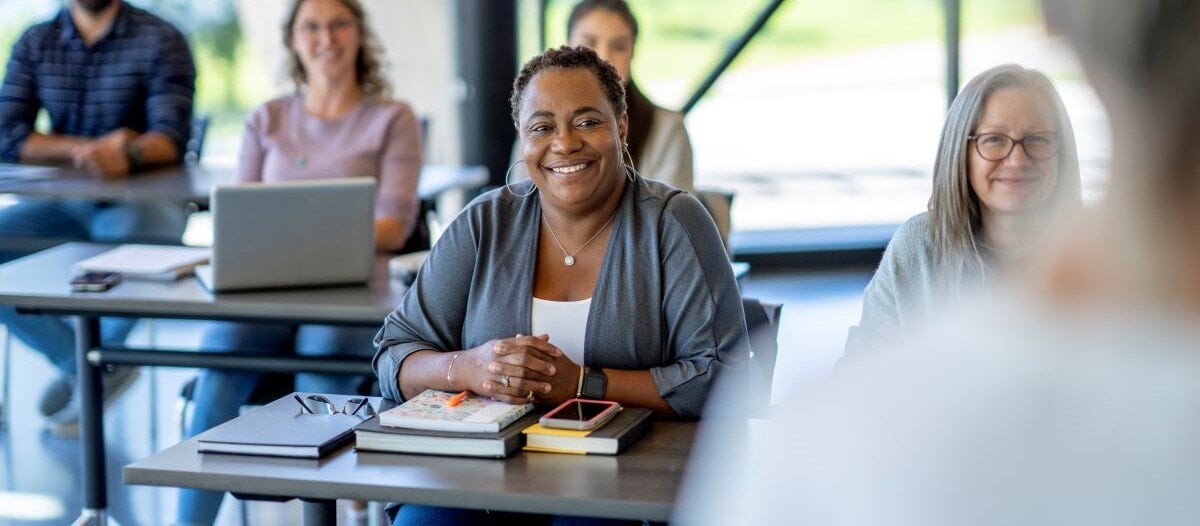Ripple Effects
IFMA Foundation enables professionals to change the world

IFMA Foundation scholarships play a vital role in shaping students' careers and future achievements. By easing the financial burden of higher education and credential training, they allow students to gain the knowledge, skills and qualifications needed to excel in their chosen fields. This strong educational background is essential for success in today’s competitive job market.
 Improving accessibility
Improving accessibility
Scholarships can make post-secondary education and credentials accessible to students who may otherwise struggle to afford them. They provide financial assistance that enables students, especially those from low-income backgrounds, first-generation college students and underrepresented communities, to pursue and complete their degrees and/or credentials. By removing financial barriers, scholarships help turn aspirations into reality, allowing talented and driven individuals to achieve academic and professional success.
The experiences of Richard Gunpat and Dr. Deniz Besiktepe are just two of many stories about how students are enabled to pursue their FM goals with assistance from IFMA Foundation scholarships.
Gunpat, a recipient of the Eric Teicholz Sustainability Scholarship – which provides free tuition for students and young professionals to earn their Sustainability Facility Professional® (SFP®) credential – said the ability to take the assessment-based program has empowered him to drive meaningful change in the FM industry.
“I began to apply the principles I learned to recommend and implement sustainable practices at my facility. More importantly, I shared my experience earning the SFP with my network, emphasizing the value of this credential,” he said. “The knowledge gained helped me make recommendations on better facility management with a focus on energy and water conservation.”
Receiving an IFMA Foundation academic scholarship in the third year of her doctorate program at Colorado State University was a pivotal moment for Dr. Besiktepe. The financial support, along with networking opportunities, allowed her to strengthen her research, refine methodologies and align her academic work with real-world applications. “At that stage, I was deeply engaged in refining my research focus, and the scholarship experience provided me with crucial opportunities to expand my network. Attending IFMA’s World Workplace and connecting with professionals in my field allowed me to gain new perspectives on my research and explore potential solutions I had not previously considered,” she said.
Impact on academic performance & career satisfaction
In addition to increasing access to education and training, scholarships positively impact academic performance, increasing a recipient’s likelihood of completing a degree or credential program on time and mitigating financial pressures that can challenge academic success. Scholarships help reduce students' reliance on loans. Graduating with little to no debt gives students the flexibility to choose career paths based on their passions and goals rather than financial obligations. This freedom not only leads to more meaningful career choices but also benefits society by fostering a workforce driven by purpose and innovation.
Supporting workforce development
Many scholarships are tailored to support students entering or working in specific industries. By investing in aspiring professionals, these scholarships help address workforce gaps and ensure industries have a steady pipeline of skilled workers. For instance, scholarships for FM students can contribute to reducing shortages in the industry by encouraging more individuals to pursue and complete the education and training required to enter this pathway.
The U.S. Bureau of Labor Statistics cited a projected 6 percent growth in demand for FMs from 2023 to 2033. This, combined with the projected retirement of about half of FMs in the next 10 years (Levine and Sandquist, 2019), underscores the importance of supporting student desire to pursue facility management education.
The IFMA Foundation has helped propel more than 700 aspiring FMs to an exciting career pathway through scholarship support since 1993, thanks to the partnership and support of individuals, IFMA components and corporate donors.
Beyond financial aid, scholarship recipients also gain access to professional networks that can enhance their careers. “The SFP credential has recognized me as a leader in sustainability and helped me build invaluable connections. I even shared a case study on sustainable practices at my facility, demonstrating how earning the SFP can showcase the tangible benefits of this knowledge,” said Gunpat.
Not only do IFMA Foundation scholarships offer financial assistance, they can also chart the course for career trajectory.
“The scholarship experience played a significant role in expanding my research efforts as part of the largest global FM community. It positioned me within a network of leading professionals and industry experts who shaped my perspective on the field,” said Dr. Besiktepe. “Attending World Workplace and engaging with IFMA Foundation’s initiatives opened doors to invaluable mentorship and collaboration.”
Dr. Besiktepe’s involvement with IFMA and the IFMA Foundation also deepened her appreciation for curriculum development and accreditation in FM education, motivating her to contribute to the field’s academic landscape. She is an assistant professor at Purdue University’s School of Construction Management.
Scholarship programs that require applicants to outline their career goals, such as those offered through the IFMA Foundation, often result in higher employment rates in competitive industries. Scholarship recipients frequently go on to advocate for their fields and mentor future professionals.
“I strongly encourage all scholarship awardees to give back by promoting the scholarship program to students and young professionals, encouraging corporate sponsorship and sharing case studies that highlight the real-world impact of these credentials,” said Gunpat.
Getting the most from scholarship experience
To maximize the benefits of a scholarship, recipients should actively engage in networking and professional development opportunities. Dr. Besiktepe emphasized the importance of taking advantage of industry events like IFMA’s World Workplace and Facility Fusion to engage in meaningful conversations and exchange contact information.
“The recognition that comes with receiving a scholarship provides access to influential professionals in the field,” she said.
Beyond attending events, scholarship recipients can leverage their new professional network by joining local IFMA chapters, participating in discussions and volunteering for IFMA Foundation initiatives.
“These relationships can lead to mentorship opportunities, internships, research collaborations and even future job offers,” Dr. Besiktepe said. Additionally, scholars should highlight their achievement on resumes, LinkedIn profiles and professional bios to showcase their dedication and potential in the field.
Lastly, maintaining long-term relationships with mentors and peers is crucial.
“A strong network is built over time and keeping in touch with those met through the scholarship experience can lead to long-term career benefits,” Dr. Besiktepe said. By fully immersing themselves in the scholarship experience, recipients gain far more than financial support — they build a foundation for lifelong professional success.
Societal benefits
Scholarships have a far-reaching impact that extends beyond individual recipients to benefit society. By making post-secondary education and credential training more accessible, fostering diversity, encouraging academic achievement and supporting career growth, scholarships help build a more skilled and knowledgeable workforce. This, in turn, fuels economic development, drives innovation and promotes social advancement.
Post-secondary education is linked to numerous benefits, such as increased earning potential, improved health outcomes and greater civic involvement. By enabling more students to earn college degrees and credentials, scholarships amplify these advantages, contributing to a more prosperous and equitable society.
Additionally, scholarship programs often inspire a culture of generosity and community support. Many recipients choose to give back by mentoring others, supporting future students or contributing financially to scholarship funds.
“My goal is to continue expanding awareness and ensuring that all awardees pay it forward, creating a lasting cycle of opportunity,” said Gunpat.
This ongoing commitment to giving back ensures that the positive effects of scholarships continue for generations, creating a legacy of opportunity and success.

References
Bureau of Labor Statistics. Occupational Outlook Handbook. https://www.bls.gov/ooh/management/administrative-services-managers.htm
CommunityForce. Evaluating Scholarship Impact: Measuring Success and Outcomes. 2025. https://www.communityforce.com/evaluating-scholarship-impact-measuring-success-and-outcomes/#:~:text=U.S.%20and%20beyond.-,Career%20Success,employment%20rates%20in%20competitive%20fields.
Diane Levine and Nancy Sandquist. Is FM Prepared for a Technical Labor Shortage. Facility Management Journal. 2019.
Torriente, Eddie. Shaping the Future: The Impact of Scholarships on Higher Education. 2025. https://eddytorrientescholarship.com/scholarship-for-single-mothers/shaping-the-future-the-impact-of-scholarships-on-higher-education/
Read more on Career Advancement and Networking or related topics IFMA , Career Advancement and IFMA Foundation
Explore All FMJ Topics








